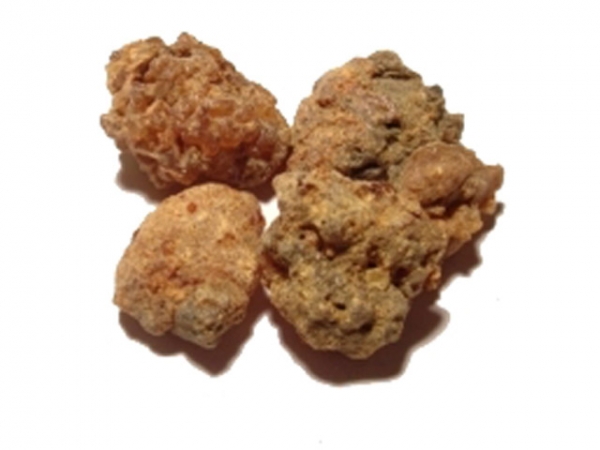Myrrh Essential Oil
Commiphora Myrrha
Myrrh blends well with Frankincense, Lavender, Palma Rosa, Patchouli, Rosewood, Sandalwood, Tea Tree and Thyme Essential Oils.
Known Uses
As a tonic, Myrrh Essential Oil stimulates thoughts, blood circulation, digestion, secretions, nervous activity and excretion. It stimulates the pumping action of the heart, the secretion of digestive juices and bile into the stomach, and it keeps you alert and active by stimulating the brain and the nervous system. Myrrh Oil protects from premature aging and infections. This oil is valued in aromatherapy as a sedative and antidepressant.
Myrrh Essential Oil can prevent ailments resulting from microbial infection, such as fever, food poisoning, cough, cold, mumps, measles, pox and wounds infections. It can be used internally and externally to fight fungal infections as well. It combats viral infections that can cause coughs and colds, relieves congestion and reduces phlegm in the lungs and respiratory tract. It also provides relief from unwanted contractions or spasms and therefore eases cramps, aches, and muscle pain. It relieves flatulence and the associated stomachaches, headaches and chest pains.
As an astringent, Myrrh Oil strengthens gums, contracts the skin, muscles, intestines and other internal organs. It also strengthens the hair roots, preventing hair loss. It can stop hemorrhaging in wounds by making the blood vessels contract, checking the flow of blood. It protects wounds from infections and makes them heal quicker. Myrrh Oil strengthens and activates the immune system and keeps the body protected from infections. Myrrh Oil increases perspiration and keeps your body free from toxins, extra salt and excess water in your body. Sweating also cleans the skin-pores and helps harmful gases like nitrogen escape.
Myrrh Oil stimulates the uterus and has the ability to normalizes menstruation and relieve mood swings and hormonal imbalances. It is good for treating skin ailments, pyorrhea, diarrhea, and skin diseases such as eczema, ringworm, and itches. Additionally, it helps with the fading away of scars.
History
Myrrh is native to Egypt where in antiquity it was frequently used in incense and perfumes. In ancient Greece it was used for healing wounds. Myrrh has a long history and has been traded in the Middle East and North Africa for more than 5,000 years.
Warning
It can have toxic effects if used in excess. It should be avoided by pregnant women since it stimulates the uterus and could result in miscarriage.
Application Methods
Dilution is not required for topical use, inhalation, or for internal use. It is regarded as safe for children.

